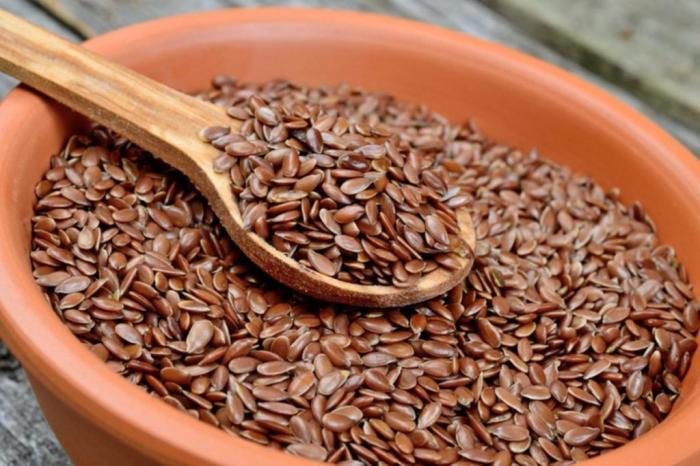Lactation is a critical phase for mothers. It is a time of nurturing and providing essential nutrition to their newborns. During this period, a mother’s diet plays a significant role in both her health and the health of her baby. One food that stands out for its many benefits is flaxseed. This small seed is packed with nutrients that can support lactating mothers. In this article, we will explore the various benefits of flaxseed and how it can be incorporated into a breastfeeding diet.
Nutritional Profile of Flaxseed
Flaxseed is rich in essential nutrients. It contains healthy fats, particularly omega-3 fatty acids. These fats are vital for brain development in infants. Flaxseed is also high in fiber, which aids digestion and helps prevent constipation. Additionally, it contains proteins, vitamins, and minerals like magnesium and phosphorus.
Flaxseed is an excellent source of lignans. Lignans are plant compounds with antioxidant properties. They can help reduce inflammation and support overall health. Incorporating flaxseed into a lactating mother’s diet can provide a range of nutritional benefits.
Omega-3 Fatty Acids
One of the standout benefits of flaxseed is its high omega-3 fatty acid content. Omega-3s are essential for both mother and baby. They play a crucial role in brain development and function. Research shows that omega-3 fatty acids can improve cognitive development in infants.
For breastfeeding mothers, consuming omega-3s can also enhance mood and reduce the risk of postpartum depression. Studies suggest that adequate intake of omega-3 fatty acids may help improve overall mental health during the demanding postpartum period.
Fiber for Digestive Health
Breastfeeding can bring about changes in a mother’s digestive system. Many women experience constipation or irregular bowel movements. Flaxseed is an excellent source of dietary fiber. Including it in the diet can promote regularity and improve digestion.
The fiber in flaxseed adds bulk to the stool. This can help in easier bowel movements. Furthermore, fiber can help mothers feel fuller for longer. This feeling can assist in maintaining a healthy weight during lactation.
Hormonal Balance
Flaxseed contains lignans, which can help balance hormones. Hormonal changes are common during and after pregnancy. These changes can affect mood, weight, and overall health. Lignans can mimic estrogen in the body. This can be beneficial for mothers experiencing hormonal imbalances.
Balancing hormones can lead to improved mood and emotional stability. For lactating mothers, this is particularly important. A stable emotional state can enhance the bonding experience with the baby.
Boosting Milk Supply
Many mothers worry about their milk supply. While several factors influence milk production, diet plays a significant role. Flaxseed may help support milk supply due to its rich nutrient content.
Omega-3 fatty acids in flaxseed can improve breast milk quality. Higher omega-3 levels in breast milk can benefit the baby’s development. Some studies suggest that flaxseed oil may even help increase milk production. However, more research is needed to confirm these effects.
Heart Health
Flaxseed can contribute to heart health for breastfeeding mothers. The omega-3 fatty acids found in flaxseed can help reduce inflammation and lower cholesterol levels.
Maintaining heart health is vital, especially for new mothers. The postpartum period can be physically demanding. Eating heart-healthy foods like flaxseed can help support cardiovascular health. This is essential for overall well-being.
Easy to Incorporate into the Diet
Flaxseed is versatile and easy to add to various dishes. It can be ground into a powder or used as whole seeds. Ground flaxseed can be sprinkled on yogurt, oatmeal, or smoothies.
Mothers can also add flaxseed to baked goods like muffins and bread. This adds nutrition without altering the taste. For those who prefer, flaxseed oil can be used in salad dressings or drizzled over cooked vegetables.
Considerations for Consumption
While flaxseed has many benefits, there are a few considerations to keep in mind. Moderation is key. Consuming too much flaxseed can lead to digestive discomfort, including bloating or gas.
A typical recommendation is to start with one tablespoon of ground flaxseed per day. Gradually increasing the amount can help the body adjust. It is also essential to drink plenty of water when increasing fiber intake.
Additionally, some women may have allergies or sensitivities to flaxseed. If any adverse reactions occur after consuming flaxseed, it is best to discontinue use and consult a healthcare provider.
Consultation with Healthcare Providers
Before making significant dietary changes, it is wise for breastfeeding mothers to consult healthcare providers. A registered dietitian or a healthcare professional can provide personalized guidance. They can help assess individual dietary needs and recommend appropriate amounts of flaxseed.
This is especially important for mothers with specific health conditions or those taking medications. Understanding how flaxseed interacts with medications or health issues can ensure safe consumption.
See also: Can I Drink Malt While Breastfeeding
Conclusion
Flaxseed is a powerhouse of nutrition that can greatly benefit lactating mothers. Its rich content of omega-3 fatty acids, fiber, and lignans makes it a valuable addition to a breastfeeding diet.
From promoting heart health to balancing hormones and potentially increasing milk supply, flaxseed offers numerous advantages. Incorporating flaxseed into daily meals is simple and versatile. However, moderation and consultation with healthcare providers are crucial.
By being mindful of their diet, lactating mothers can support their health and the well-being of their babies. Flaxseed can be a wonderful ally during this important phase of life.
Related topics:


